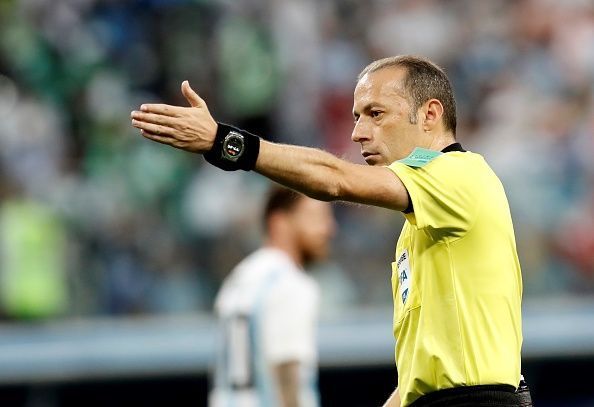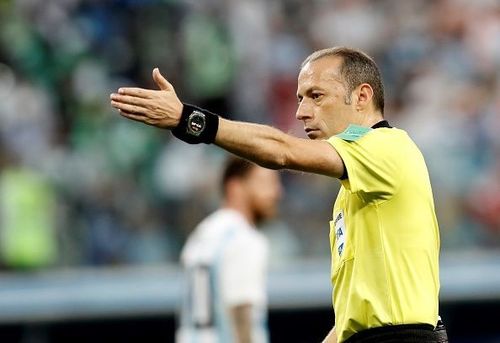
Referee Cakir's Excellent Performance Shows How VAR Should be Used
So often when referees appear in the media, it is for the all the wrong reasons. Ignored penalty shouts and disallowed goals can often be a recipe for disaster for match officials, generating countless headlines and often inciting spiteful comments from disgruntled managers. Twitter has been awash with unabashed criticism for referees throughout this tournament in particular.
It is rare that a referee gets the recognition they receive after a brilliant performance, and, with the advent of VAR, that looks set to get even rarer.
In a World Cup so far marred by debate and discussion over the implementation of technology, Turkish referee Cuneyt Cakir showed how a strong, decisive refereeing performance can allay most of the worries associated with the use of VAR.
Many officials in Russia have been known to be "weak" when faced with video evidence or contrary opinions from the video referees in Moscow, often changing their decision at the slightest opportunity. There is a general belief that referees are somewhat obliged to change their decision after the lengthy journey to the VAR screen, further compromising their position.
With the football world still reeling from Iago Aspas' late goal which saw Spain top their World Cup group by the smallest of margins, officiating at the tournament was quickly devolving into little more than a farce.

Cakir, however, stood firm in the face of two potentially game-changing decision. He ran the rule over a potential penalty against Marcos Rojo and a trip on Angel Di Maria in the Nigerian 18-yard-box, trusting his interpretation enough not to refer to the video on both occasions.
His management of the game extended from the large aspects of the encounter to even the smallest details, consistently showing the value of his vast experience and sharp judgment in a manner that is deserving of a level of praise rarely given to referees.
It appears that a new skill that referees at this World Cup must master is the ability to manage upwards - that is to say, maintain their professional integrity while still relying on video officials that are seated hundreds of miles away in Moscow.
Even when the overturned decisions were objectively incorrect, for many, the use of VAR is already seen as a violation of the game they love. The use of the video screen, they argue, has already violated trust in the referee and reduced his authority to make decisions independent of the technology.
Worse still are referees who change their interpretation of the game because of the video technology to fall back on. For example, Younggwon Kim's offside goal was given by the video referee in Korea's game against Germany because the ball was adjudged to have touched Niklas Sule's leg. This is an example of how referees are getting stricter simply because they have the technology to enforce it, which is catching players off guard.
Video Assistants are there to aid, not override, the interpretation of a referee. Cakir is one of the few officials at the tournament who understands this and has managed to find a balance between VAR and his own professional judgment.